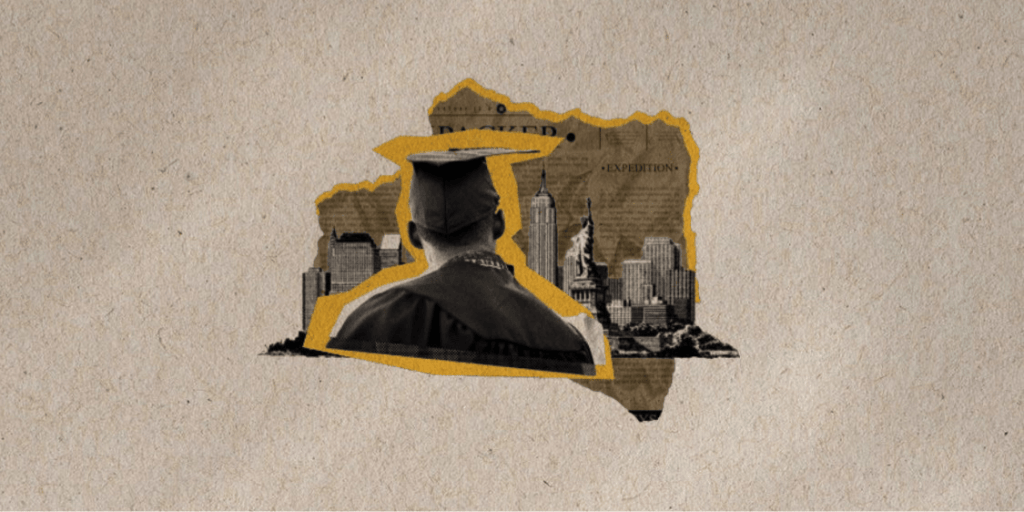
It is hard to imagine Yerevan without students, whether on university campuses, public libraries, or even long-lasting lines in front of the coffeehouses. However, in a couple of years, Yerevan will not be a home to thousands of university students.
The decision made by the Armenian Government states that from 2030, universities will be removed from Yerevan to the Academic City. This raised several concerns among students, university instructors and education experts.
In October 2023, the government introduced the decision that Academic City will become an educational, scientific and innovative center for the students. It will be situated in the 17th district of Yerevan and will cover an area of 700 hectares. The Academic City will include 16 public and eight private universities.
Due to limited experience with large project constructions like the Academic City, the Ministry of Education, Science, Culture and Sports is partnering with German engineering company GMP International GmbH Architects and Engineers. Tobias Keyl, the company’s vice president, presented the final plan for Academic City.
According to his plan, the construction will launch at the beginning of 2025 and last until 2029. The Academic City will provide students and personnel with all the necessities, including dormitories. It will hold a capacity of 44,000 people.
Still, the idea of the Academic City is not being accepted unanimously and raises many debates about its function, funding, and administration.
One of the main controversies about the Academic City is its location. All the universities will be removed from the center of Yerevan and moved to a suburban area. Being far from the center will affect students financially, as some students’ workplaces are in the center of Yerevan.
Another point is that staying in the center is a must for some academic programs.
Artur Avanesov, a music instructor at the American University of Armenia who previously taught at the Conservatory, mentioned, “As a former student of Conservatory, I know very well that the majority of activities as a musician student were linked to the concert halls in the city center to practice and to rehearse.”
He added, “Transportation is another issue as some of the Conservatory students must carry heavy musical instruments like cellos from concert halls to the university.”
This issue is true for medical, law, and business students, whose main practice centers are near the central area.
The Academic City will organize its educational administration into five clusters: a technological cluster, a medical cluster, an arts cluster, an educational cluster and a military cluster.
Each cluster will have the capacity of the existing number of students and staff in the current universities plus the expected increase in capacity of at least 30%. All the clusters will have their high schools in the Academic City that will prepare students for pursuing their studies after graduating from school.
The cluster system project is still under discussion. In his latest discussion about the Academic City, Prime Minister Nikol Pashinyan talked about only the technological and arts clusters and their functions.
The Academic City aims to have twice as many international students as there are in all the Armenian universities combined.
In his speech about the Academic City, Pashinyan stated “Having more international students will be the main evidence that we provide competitive and quality education not only for international students but also our own students .”
The presence of international students will lead the Academic City to be on the ranking of the Top 500 universities in the world. Avensov mentioned that this is a controversial issue, as being in the Top 500 does not guarantee the quality of education.
“Why would we even be concerned about being on that list as many well-known universities like the University of Zurich withdrew from that ranking,” Avanesov stated. “It is better to think about more important aspects like bringing professionals abroad and increasing the staff’s salaries to have a better result,” he said.
Currently, the Academic City is one of the most popular discussion topics among the students. Though not much is known about the content of the education in the Academic City, a lot of students reacted negatively to this project.
Manana Davtyan, a student and a member of the student council at Yerevan State University, said, “Most students do not approve of this idea as their universities and their buildings hold huge historical and cultural values, and they will lose their identities under a single institution.”
She added that according to the new law about higher education in Armenia, all the universities that do not hold more than 4000 students will be shut down. This also applies to regional universities, forcing many students from different regions to put their plans for advanced education under question.












